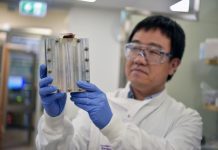
Immediate and sustained investment in Australian science and innovation is deemed essential by the Australian Academy of Technological Sciences and Engineering (ATSE), as highlighted in their response to the Federal Budget.
While ATSE acknowledges the government’s commitments to review Australia’s current investment in science and innovation and to support clean energy industries, they stressed that further delay in investment is not an option, as stated in the organisation’s news release.
Comparatively, data reported by ATSE revealed that Australia falls behind countries like the United States, Japan, and Germany, all of which allocate more than 3 per cent of their GDP to research and development, a crucial driver of economic growth.
ATSE emphasised that Australia’s investment in research and development will significantly influence the success of the announced “Future Made In Australia” initiatives.
Kylie Walker, CEO of ATSE, appreciates the government’s emphasis on developing Australia’s clean energy system, which is seen as vital for future industries and job creation.
“Investments in battery manufacturing, renewable green hydrogen production and critical minerals processing are central to the nation’s net zero ambitions; these are areas where we have a comparative advantage in the global supply chain and which are fundamental for the jobs of the future,” she noted.
Walker further explained, “However, it is critical for the Government to recognise that developing these industries requires innovations that will only come from a strong and well-funded science and technology sector.
ATSE said it welcomes the proposed review of Australia’s research and development system, as recommended in their pre-budget submission, underscoring the urgent need to catch up with leading nations in technological innovation.
The Academy said it also supports the allocation of $1.1 billion over five years for the initial stage reforms of the Universities Accord, focusing on equity and access to higher education.
Measures such as paying for selected student placements and limiting the indexation of HECS-HELP loans are welcomed as steps towards creating a needs-based funding system that supports underrepresented students and prepares the STEM workforce for the future.
ATSE urges the government to extend support for unpaid work placements to university engineering students, given the critical shortage of engineers, whose skills are pivotal for the clean energy transition.
Walker emphasized the importance of preparing the next generation of engineers to meet the challenges of a rapidly evolving technological landscape.


















